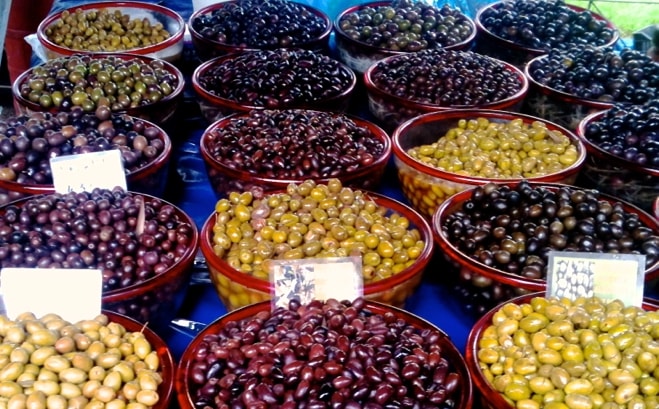Traditional Greek Foods May Be Eligible for Over 1000 Nutrition Claims in Europe
I was very happy when I received Dr. Antonia Trichopoulou’s latest study that basically examined the potential of 194 traditional Greek foods to bear nutrition claims.
Dr. Trichopoulou, M.D., Ph.D. is one of the top Mediterranean diet researchers in the world. A Professor of Preventative Medicine and Nutrition at the University of Athens Medical School, she was one of the contributors to the development of the Mediterranean Diet Pyramid by Harvard. Apart from her interest in researching the benefits of the Mediterranean diet she also feels that it is very important to preserve traditional foods.
In this study Trichopoulou along with her colleagues basically wanted to see how many traditional Greek foods were eligible to bear nutrition claims in the European Union market.
Why? Well nutrition and health claims on foods could offer a valuable tool in highlighting some of the beneficial nutritional properties of Greek/Mediterranean traditional foods, and at the same time protect consumers from unjustified claims, guiding them towards better dietary choices.
So what does this all mean? Nutrition and health claims on labels all over the world are usually used on highly processed foods so that we can be persuaded that they are good for us when in fact they are not. Let me give you an example: We often see cereal particularly those that are promoted to kids with nutrition claims such as “good source of fiber” “contains 8 vitamins and minerals” etc. In fact that cereal has added sugars, the vitamins and minerals for the most part are added in etc. In other words, not that healthy after all. But the nutrition claims make us buy these products. Why not, as Trichopoulou is pointing out, have nutrition claims on traditional foods, which are after all less processed and definitely healthier? This will not only help the consumer eat better but it will also promote and help preserve all these traditional foods and in effect promote local economies as well. Not only in Greece but in other countries as well who should look to promote their own traditional products.
One of the aims of the study was to get a better understanding of the nutritional value of several Greek traditional foods, and it was confirmed that most Greek traditional foods possess several beneficial nutritional properties.
The researchers conclude that traditional foods, particularly those from the Mediterranean area, are often rich sources of nutrients and this study supports the idea that these traditional products are frequently eligible to bear a wide range of nutrition claims.
So all you Greek companies producing wonderful traditional Greek products, start looking into this and let people know all about the nutritional benefits they truly have by labeling it. What better way to endorse Greek Mediterranean products then by highlighting their nutritional and health benefits?
The study was published in the Mediterranean Journal of Nutrition and Metabolism

